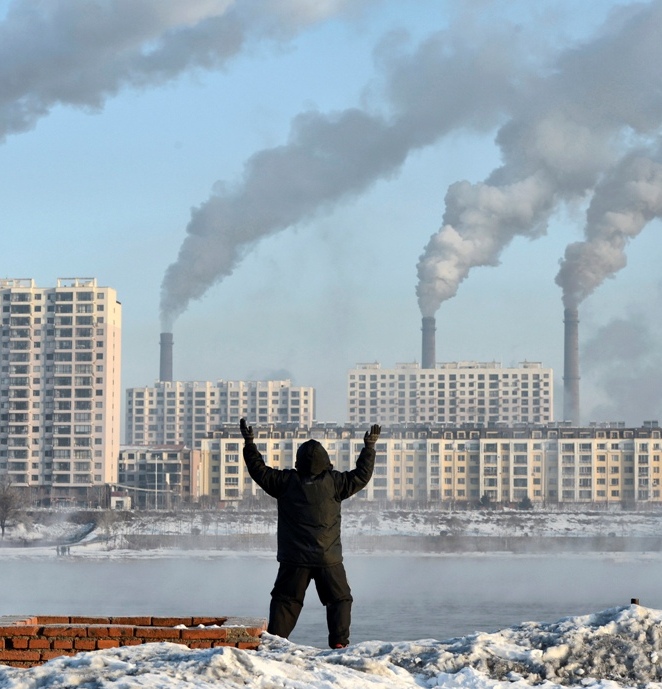Climate change warning as greenhouse gas levels soar to record atmosphere high
Surging carbon dioxide levels have pushed greenhouse gases to record highs in the atmosphere, the World Meteorological Organisation (WMO) has said. Concentrations of carbon dioxide, the major cause of global warming, increased at their fastest rate for 30 years in 2013, despite warnings from the world’s scientists of the need to cut emissions to halt temperature rises. Experts warned that the world was “running out of time” to reverse rising levels of carbon dioxide (CO2) to tackle climate change.
We know without any doubt that our climate is changing and our weather is becoming more extreme due to human activities such as the burning of fossil fuels. The greenhouse gas bulletin shows that, far from falling, the concentration of carbon dioxide in the atmosphere actually increased last year at the fastest rate for nearly 30 years.
Michel Jarraud, WMO secretary-general
Data shows levels of the gas increased more between 2012 and 2013 than during any other year since 1984, possibly due to less uptake of carbon dioxide by ecosystems such as forests, as well as rising CO2 emissions. The annual greenhouse gas bulletin from the WMO showed that in 2013, concentrations of CO2 in the atmosphere were 142 per cent of what they were before the Industrial Revolution. It came as University of East Anglia researchers said Britons should brace themselves for more extreme winters. A study of seasonal records dating back to 1899 found that while most seasons have not changed dramatically, winter has become much more unpredictable.
These measurements show the unremitting increase of carbon dioxide in the atmosphere. Indeed, far from a slowdown, the concentration is rising faster than ever—with an inevitable impact on future global temperatures. To have any chance of avoiding increasingly serious impacts of climate change, steps need to be taken now to reduce CO2 emissions.
Professor Joanna Haigh, co-director of the Grantham Institute for Climate Change and Environment, Imperial College London

Science co2 levels